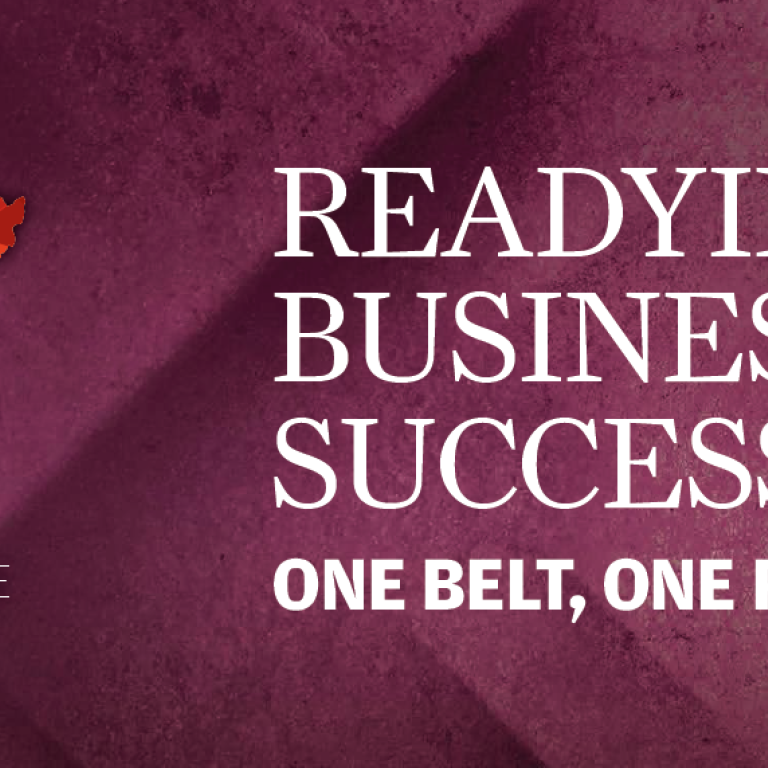
Conference shines spotlight on OBOR plans
The boldness of China’s “One belt, One road” (OBOR) economic initiative is almost breathtaking. In essence, it looks to boost trade and spur investment with all the countries along the ancient Silk Road stretching from Central Asia into the heart of Europe. Not only that, the ambitious vision also embraces countries in Southeast Asia and along the maritime routes to the Middle East and Africa.
The goal is to transform economies, open new markets, and build high-standard infrastructure and IT networks geared to the needs of the 21st century. To some it might seem a tall order, but that ignores China’s impressive record of achievement over the last 30 years and the mainland’s ability to deliver on stated policy objectives and make change happen.
The plain fact is that the OBOR initiative is a big deal. And, taking a local perspective, Hong Kong is uniquely positioned and equipped to play a major part by supplying finance, expertise and all-round business know-how to get new projects off the ground and help them fly.
Of course, many elements of the overall strategy are still taking shape; more detailed aspects will emerge over time. But the starting gun has been fired, and it is now up to Hong Kong’s various industry sectors, service providers, professional firms and potential investors to determine how best to capitalise on these exciting developments and ensure they are not left behind.
With that in mind, today’s China Conference organised by the South China Morning Post is built around the theme of “Readying your business for success in OBOR”.
The aim is to examine the “macro” issues of how trade patterns, economic development, investment priorities, and high-tech requirements are likely to shift and evolve in the next decade and beyond.
But due attention will also be given to the practicalities organisations and entrepreneurs have to consider as they start doing business in less familiar markets. In most cases, they will have to establish effective new partnerships, understand different legal, regulatory and tax systems, and come to terms with the nuances of operating in the countries and cultures which are part of this “new paradigm”.
Reflecting that, after opening the remarks by Chief Executive the Hon. CY Leung and keynote speech by the Hon. Tung Chee-hwa, the agenda addresses topics ranging from future development of China’s economy to the possible impact of political change around the world.
With a line-up of top policymakers, investors and business leaders, other sessions will examine Hong Kong’s role as a gateway to China and a regional hub for OBOR-related projects. And in-depth case studies, featuring entrepreneurs who have “been there”, will look at the vital role of new technologies and the importance of first-mover advantage.
“Initially, many of the opportunities for Hong Kong may surround the finance sector,” says Antony Leung, former Financial Secretary of Hong Kong and now group chairman and chief executive officer of Nan Fung Group. “There will be tremendous demand for infrastructure spending. And even allowing for what the Asian Infrastructure Investment Bank can
leverage, there will still be a need for capital from debt financing and both private and public equity.”
In addition, Hong Kong can easily provide foreign currency and offshore renminbi services, as well as expertise in managing currency, liquidity and interest rate risk, whether through banks or insurance companies.
However, Leung is also quick to highlight other areas of obvious opportunity. These include professional services, ranging from legal advice to sector consultancy and arbitration. Hong Kong, with its world-class airport and railway systems, can offer a wealth of expertise in most aspects of infrastructure development and management. And, as such, it can now reinforce its status as a regional centre for construction, architecture and project management.
“Hong Kong can also have a unique role as a third-party investor,” says Leung, who is a key speaker at the conference session on searching for real estate opportunities in 2017 and beyond. “A lot of the OBOR projects may want that, and institutions here have the necessary experience of investing in other countries and these types of environment.”
More generally, he suggests the Hong Kong government could still do more to promote the understanding of the OBOR initiative among local companies and within the wider community. This would also mean increasing efforts to attract companies and institutions from relevant countries to set upoffices here and pushing ahead with related trade shows and exhibitions.
“It is also important to consider some form of insurance against political risk [in the OBOR region],” Leung says. “Companies can price commercial risk into their projects, but cannot assess political risk properly, so I would hope the HKSAR and mainland governments can give that some consideration.”
For Rachel Duan, president and chief executive officer of GE China, the “huge demand for infrastructure” is the most obvious priority when reviewing what comes next for the 65 or so countries involved. As emerging economies, they need better roads, railways, ports, power plants and airports – opening the door to companies which can build, operate and finance the kind of projects being contemplated.
“For OBOR to succeed, there has to be an ‘ecosystem’ consisting of both public and private sector players across the region,” says Duan, who is taking part in the panel discussion on fostering partnerships and innovation. “No company or country can single-handedly pull off such large-scale infrastructure projects. It takes time and good collaboration to establish such an ecosystem and the ability to work with different cultures and regulatory frameworks.”
